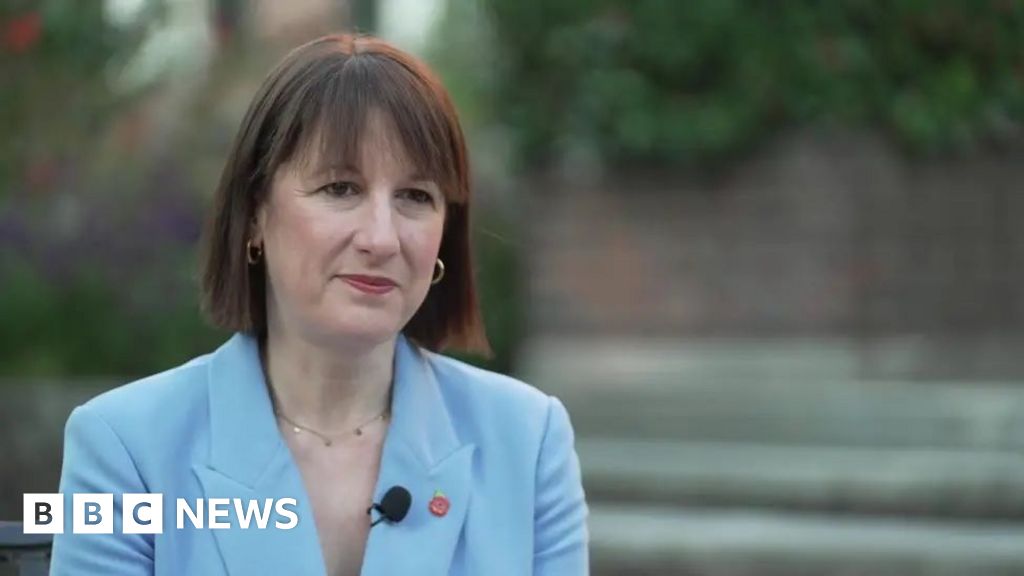The government will change its self-imposed debt rules in order to free up billions for infrastructure spending, the chancellor has told the BBC.
Rachel Reeves said that she would make a technical change to the way debt is measured which will allow it to fund extra investment.
She said this was being done “so that we can grow our economy and bring jobs and growth to Britain”.
However, Reeves’ first Budget next week is still expected to mean some cuts to public services and tax rises.
The government has committed to get debt falling as share of the economy during the course of this Parliament, rather than over a rolling five-year period.
But the wider debt measure is expected to allow for up to £50bn more borrowing to invest in big building projects such as roads, railways or hospitals, although not all of this is expected to be allocated at the Budget.
“We will be changing the measure of debt,” Reeves told the BBC, adding that she will set out the details of that on 30 October.
She said the Treasury would “be putting in guard rails” on investment spending by having the National Audit Office and the Office for Budget Responsibility, the government’s financial watchdog, “validating the investments we’re making to ensure we deliver that value-for-money”.
Reeves added having such oversight would also “give markets confidence that there are rules around the investments we can make as a country”.
But shadow chancellor Jeremy Hunt said the “consistent advice I received from Treasury officials was always that increasing borrowing meant interest rates would be higher for longer – and punish families with mortgages”.
“The markets are watching,” he added.
However, a Labour spokesperson said the party “will not take any lectures from the Tories on how to run the economy” citing former Prime Minister Liz Truss’s mini-budget which caused market turmoil.
It is understood the extra room for manoeuvre for spending on investment projects will not be able to be used for extra day-to-day spending or to reduce planned Budget tax rises.
Speculation is growing over what taxes will be raised next week, with Labour’s election manifesto stating the party would not increase taxes on “working people”, including National Insurance, income tax and VAT.
The chancellor has signalled that businesses face an increase in National Insurance, saying the “working people” pledge related to the employee element of the tax, as opposed to the sum paid by employers.
There has been lack of clarity over how the government defines “working people”.
Later on Thursday, Prime Minister Sir Keir Starmer told Sky News he did not consider someone who works but gets their income from assets as well, such as shares or property, to be a working person.
“They wouldn’t come within my definition,” he said.
He separately told reporters a working person is someone who “works for a living and through that gets their income”.
Acknowledging this was a “very broad” definition, he elaborated he had in mind someone who earns a living and has savings but who doesn’t “have the ability to sort of routinely write a big cheque if they get into difficulties”.
‘Get a grip’
Earlier Reeves told the BBC it was important for the government to “get a grip on day-to-day spending” by making sure it was paid for through tax receipts and by reforming public services to make them more productive.
The chancellor said she will confirm a tighter financial rule on spending on welfare, in government departments, and on debt interest.
That rule “is the one that really binds, and it’s hard to meet, and that will require difficult decisions on spending, welfare and taxation,” she said.
The chancellor said she intended to reverse what she called “the path of decline” that she says she has inherited from the previous Conservative administration.
She suggested this would have seen a fall in government investment from 2.6% of the share of the economy last year to 1.7% by 2028-29, or £20bn a year in cash terms.
“If we continued on that path, we’d miss out on other opportunities, and other countries would seize them,” she said.
“We need to invest more to grow our economy and seize the huge opportunities there are in digital, in tech, in life sciences, in clean energy, but we’ll only be able to do that if we change the way that we we measure debt,” she said at a meeting at the International Monetary Fund (IMF) in Washington DC.
Sir Keir told the BBC the change to the debt rules showed the “mindset of the new government”.
“We’re going to clear the decks,” he said. “If you know what the problem is, what the challenge is, every business knows this, every family knows it, run towards it and fix it.”
The Treasury had already signalled that a rule change was likely ahead of the Budget.
The chancellor cited top economists as backing the move, including both the former governor and chief economist of the Bank of England, Mark Carney and Andrew Haldane, as well as former Conservative Treasury minister Jim O’Neill.
She also referred to the words of a top IMF official overnight.
The organisation’s first deputy managing director Gita Gopinath backed greater investment, speaking to the BBC: “I just want to emphasize again, that public investment is needed in the UK.
“If you compare the UK to G7 countries, investment has fallen short, and so that spending will have to take place alongside having the kind of rules that stabilizes debt over the next five years.”
But writing in The Times newspaper last week, Paul Johnson, director of the Institute for Fiscal Studies think tank, said that using a broader debt measure called public sector net financial liabilities could have downsides, including potentially spooking financial markets, which fund the government’s borrowing.

